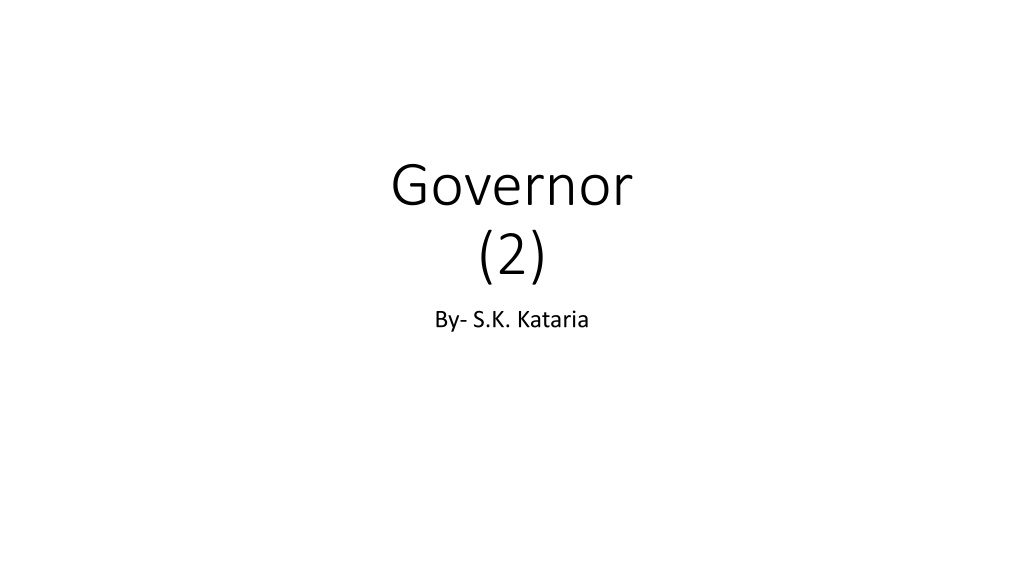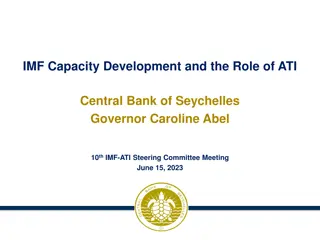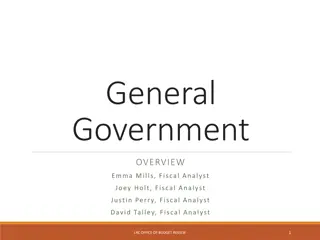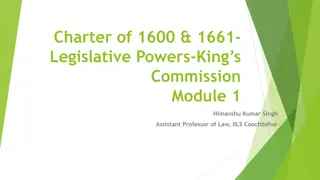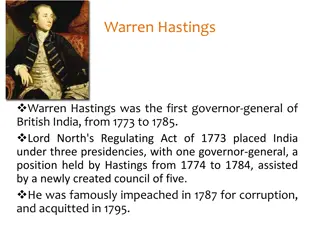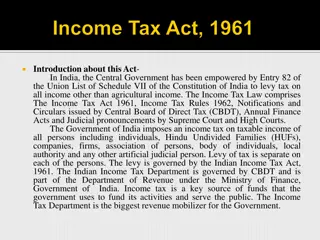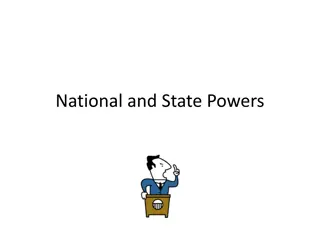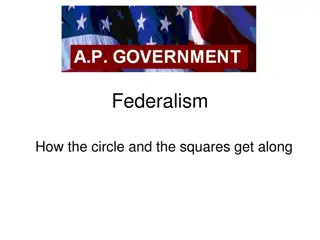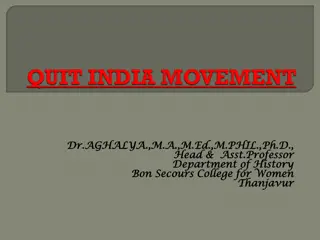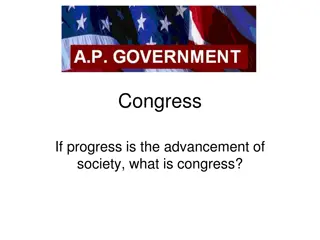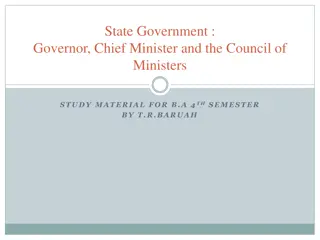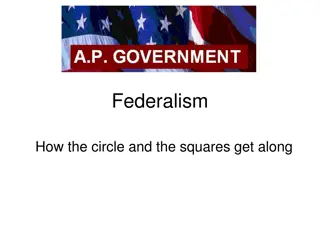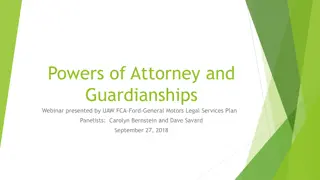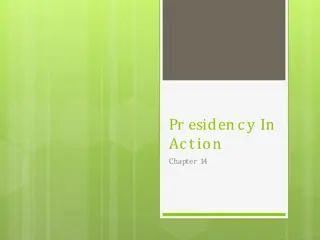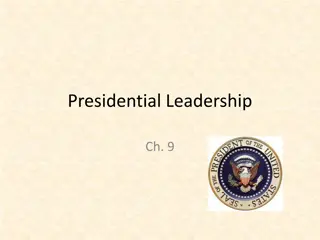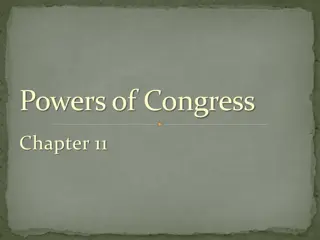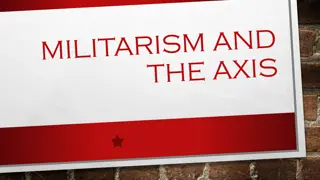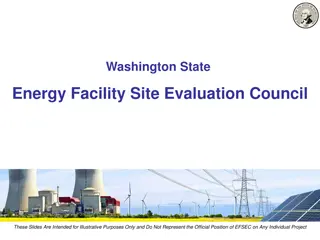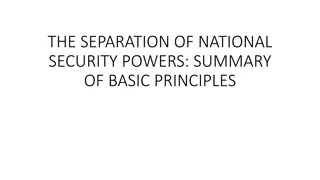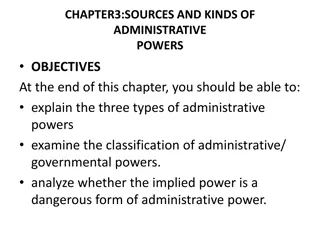Role and Powers of a State Governor in India
The Constitution of India outlines the executive powers and duties of a State Governor, including the ability to grant pardons, reprieves, and make orders on behalf of the government. The Governor is advised by a Council of Ministers led by the Chief Minister, with certain functions requiring the Governor's discretion. The conduct of state government business is done in the Governor's name, with rules and regulations governing the delegation of powers to the State Government.
Download Presentation

Please find below an Image/Link to download the presentation.
The content on the website is provided AS IS for your information and personal use only. It may not be sold, licensed, or shared on other websites without obtaining consent from the author. Download presentation by click this link. If you encounter any issues during the download, it is possible that the publisher has removed the file from their server.
E N D
Presentation Transcript
Governor (2) By- S.K. Kataria
Powers and duties The Constitution of India provides as under:- -Article 154. Executive power of State.- (1) The executive power of the State shall be vested in the Governor and shall be exercised by him either directly or through officers subordinate to him in accordance with this Constitution. Article 161. Power of Governor to grant pardons, etc., and to suspend, remit or commute sentences in certain cases.- The Governor of a State shall have the power to grant pardons, reprieves, respites or remission of punishment or to suspend, remit or commute the sentence of any person convicted of any offence against any law relating to a matter to which the executive power of the State extends.
Contd- Article 163. Council of Ministers to aid and advise Governor.- (1) There shall be a Council of Ministers with the Chief Minister at the head to aid and advise the Governor in the exercise of his functions, except in so far as he is by or under this Constitution required to exercise his functions or any of them in his discretion. (2) If any question arises whether any matter is or is not a matter as respects which the Governor is by or under this Constitution required to act in his discretion, the decision of the Governor in his discretion shall be final, and the validity of anything done by the Governor shall not be called in question on the ground that he ought or ought not to have acted in his discretion. (3) The question whether any, and if so what, advice was tendered by Ministers to the Governor shall not be inquired into in any court.
Contd- Article 164. Other provisions as to Ministers.- (1) The Chief Minister shall be appointed by the Governor and the other Ministers shall be appointed by the Governor on the advice of the Chief Minster, and the Ministers shall hold office during the pleasure of the Governor. (2) Before a Minister enters upon his office, the Governor shall administer to him the oaths of office and of secrecy according to the forms set out for the purpose in the Third Schedule. Article 166. Conduct of business of the Government of a State.-
Contd- Article 166. Conduct of business of the Government of a State.- (1) All executive action of the Government of a State shall be expressed to be taken in the name of the Governor. (2) Orders and other instruments made and executed in the name of the Governor shall be authenticated in such manner as may be specified in rules to be made by the Governor, and the validity of an order or instrument which is so authenticated shall not be called in question on the ground that it is not an order or instrument made or executed by the Governor. (3) The Governor shall make rules for the more convenient transaction of the business of the Government of the State, and for the allocation among Ministers of the said business in so far as it is not business with respect to which the Governor is by or under this Constitution required to act in his discretion. The Governor has delegated his powers to the State Government through Rules of Business of the Government of Haryana, 1977 . The exercise of powers is regulated by law.
Role of the Governor As the constitutional head of the province. As the representative of the union govt. As the real executive of the state govt. Role in crisis situation and disputes. ( selection and removal of the Governor, appointment of the Chief minister, dismissal of council of ministers, abolition of state assembly etc.) -Misuse of Article 356 ( 125 times up to Dec. 2019) have been the major criticism.
Core concerns The office of the Governor in India has been a disputed institutions since mid of sixties in 20thcentury. Sarkaria Commission on centre-state relations ( 1983-87), Committee of Governors( 1970), Governors conference (1997), Punchhi commission ( 2007) and many other commissions and committees and including the Supreme court s directions ( S R Bommai case, 1994) on the Governors etc. have given many suggestions on this issue.
Questions Very short answer / - What do you understand by the Governor/sate assembly/ judicial powers/legislative powers/ floor test/public servants . Short answers / - Discuss the executive/legislative/judicial powers of the Governor. - Long answer - Describe the role of the Governor in state administration. - What are the main issues related with the office of Governor in India. Analyze.
Further readings As mentioned in the previous material.
